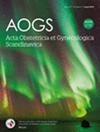AI-driven simplification of surgical reports in gynecologic oncology: A potential tool for patient education
Abstract
Introduction
The emergence of large language models heralds a new chapter in natural language processing, with immense potential for improving medical care and especially medical oncology. One recent and publicly available example is Generative Pretraining Transformer 4 (GPT-4). Our objective was to evaluate its ability to rephrase original surgical reports into simplified versions that are more comprehensible to patients. Specifically, we aimed to investigate and discuss the potential, limitations, and associated risks of using these simplified reports for patient education and information in gynecologic oncology.
Material and Methods
We tasked GPT-4 with generating simplified versions from n = 20 original gynecologic surgical reports. Patients were provided with both their original report and the corresponding simplified version generated by GPT-4. Alongside these reports, patients received questionnaires designed to facilitate a comparative assessment between the original and simplified surgical reports. Furthermore, clinical experts evaluated the artificial intelligence (AI)-generated reports with regard to their accuracy and clinical quality.
Results
The simplified surgical reports generated by GPT-4 significantly improved our patients' understanding, particularly with regard to the surgical procedure, its outcome, and potential risks. However, despite the reports being more accessible and relevant, clinical experts highlighted concerns about their lack of medical precision.
Conclusions
Advanced language models like GPT-4 can transform unedited surgical reports to improve clarity about the procedure and its outcomes. It offers considerable promise for enhancing patient education. However, concerns about medical precision underscore the need for rigorous oversight to safely integrate AI into patient education. Over the medium term, AI-generated, simplified versions of these reports—and other medical records—could be effortlessly integrated into standard automated postoperative care and digital discharge systems.





 求助内容:
求助内容: 应助结果提醒方式:
应助结果提醒方式:


